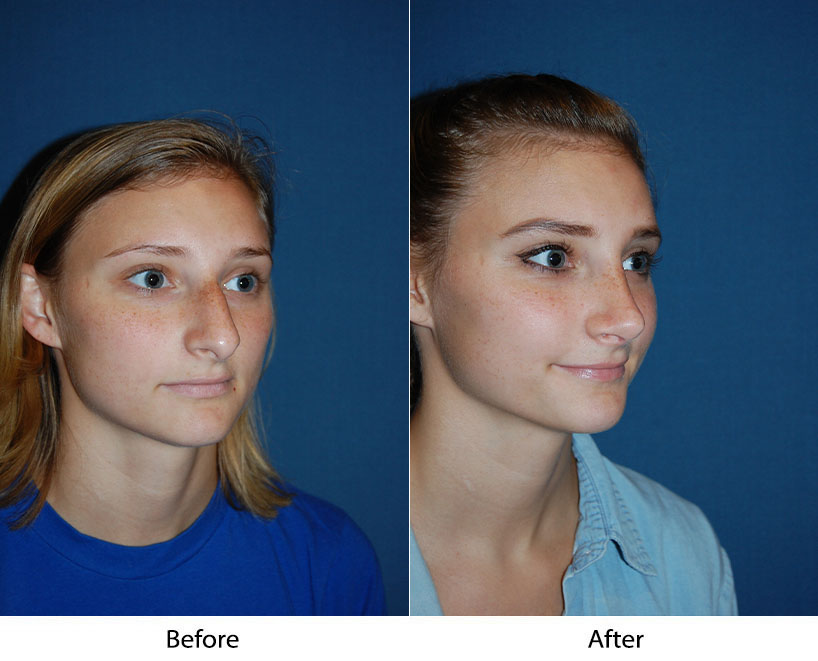Overview
Rhinoplasty is a surgical procedure involving the nose. Cosmetically, it is done to change the size, shape, or proportion of the nose. More specifically, it can be used to make the nose larger or smaller, change the angle or tip, diminish bumps or indentations, and correct other defects or asymmetry in the nose. Functionally, rhinoplasty can be performed to correct a deviated septum as a result of a birth defect or injury to improve breathing. Charlotte’s top rhinoplasty surgery specializes in both teen and reconstructive rhinoplasty as well, and can consult with you on the best route to take to achieve your individual goals.
Pre-Procedure
Before the procedure, your surgeon will meet with you for a consultation. He will analyze the structure and skin of your nose, both internally and externally, as certain characteristics, like the thickness of your skin or the malleability of your cartilage may affect the procedure. He will also review your medical history, which includes any previous procedures, nasal obstructions, and medications you take. Candidates with hemophilia and other bleeding disorders may not be able to qualify for rhinoplasty. Your surgeon may require certain laboratory blood tests, like a pregnancy test. Your surgeon will go over your aesthetic goals with you to determine if they are reasonable and achievable. Many patients are also candidates for a chin augmentation, which can help compliment your rhinoplasty by making your nose appear smaller or more proportional to your face. In the weeks, days, or hours before surgery, you may be required to abstain from certain medications, smoking, and eating. You will also need to arrange for someone to drive you home afterwards, due to the disorientation and other short-term effects of general amnesia as it wears off.
Procedure
During the procedure, your surgeon will make incisions to gain access to the nose’s bone and cartilage, which provide its support and structure, as well as the tissue. For the bridge of the nose, incisions are made inside and are not visible. For the tip of the nose, incisions are made to the skin between the nostrils. For the nostrils, incisions are made where each nostril meets the face. For chin implants, incisions are made inside the mouth.
Recovery
Bruising tends to last for 7 to 10 days. Swelling can last for a few weeks, while minor swelling may last for up to one year. Temporary skin numbness may also occur. Nasal packing is usually not required.
Your Surgeon
Dr. M. Sean Freeman is Charlotte’s most experienced rhinoplasty surgeon. He has specialized in cosmetic facial plastic surgery since 1988 and has pioneered numerous techniques. Dr. Freeman is based at the Center for Facial Plastic and Laser Surgery, a state-of-the-art surgical center conveniently located in Charlotte.
Contact Dr. Sean Freeman at Only Faces, Charlotte’s most experienced rhinoplasty surgeon and top facial plastic surgeon, to schedule a consultation to find out what procedure is right for you. Call today.

